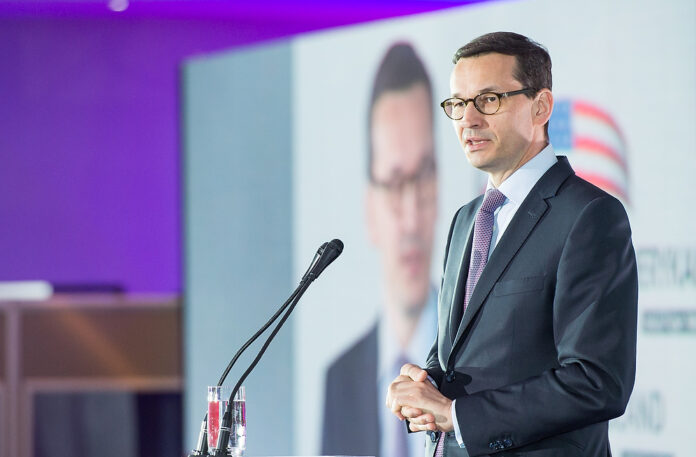Once a staunch ally of Ukraine, Poland has abruptly announced its decision to cease arming the country amidst escalating tensions over a grain dispute. This unexpected move comes just weeks before Poland’s parliamentary election and has far-reaching implications for Ukraine’s ongoing conflict with Russia.
In a television interview, Mateusz Morawiecki, Poland’s Prime Minister, stated that his country would no longer transfer weapons to Ukraine. Instead, Poland intends to focus on modernizing its military with state-of-the-art weaponry, citing concerns about potential Russian aggression in the region. Morawiecki did not elaborate on the details of this military modernization plan, leaving many questions unanswered.
This decision marks a significant policy shift for Poland, one of Ukraine’s primary arms suppliers and a vocal supporter since Russia’s invasion in February 2022. Poland had previously sent fighter jets, tanks, and other military equipment to Ukraine, often serving as a crucial transit route for Western military aid.
Poland’s decision to halt arms transfers has generated concern and criticism from various quarters. This abrupt shift may undermine Western support for Ukraine as it struggles to repel Russian forces. The Joint Chiefs of Staff Chairman, General Mark Milley in the United States, recently emphasized the need for continued military assistance to Ukraine, but growing fatigue among some U.S. lawmakers regarding aid to Ukraine complicates matters.
Both domestic and regional factors influence Poland’s decision. The upcoming parliamentary election on October 15th has heightened political considerations, with Poland’s ruling Law and Justice (PiS) party facing pressure from far-right elements critical of its support for Ukraine. A recent grain dispute among Hungary, Slovakia, Poland, and Ukraine has also strained relations. Poland extended its ban on Ukrainian grain imports, citing concerns for its farmers. This move triggered retaliatory actions from Ukraine, the European Commission, and other countries.
The Polish-Ukrainian rift also coincides with Ukraine’s ongoing counteroffensive against Russian forces, a campaign that has faced challenges and slow progress. Volodymyr Zelenskyy, Ukraine’s President, is seeking advanced weapons, including longer-range missiles, to bolster his country’s defense capabilities.
Despite efforts to defuse tensions in the grain dispute, the sudden cessation of arms transfers from Poland to Ukraine has escalated the situation. Poland insists its decision is driven by the need to prioritize its security, but critics argue that it risks eroding Western support for Ukraine’s defense efforts.
Image is in the public domain.









